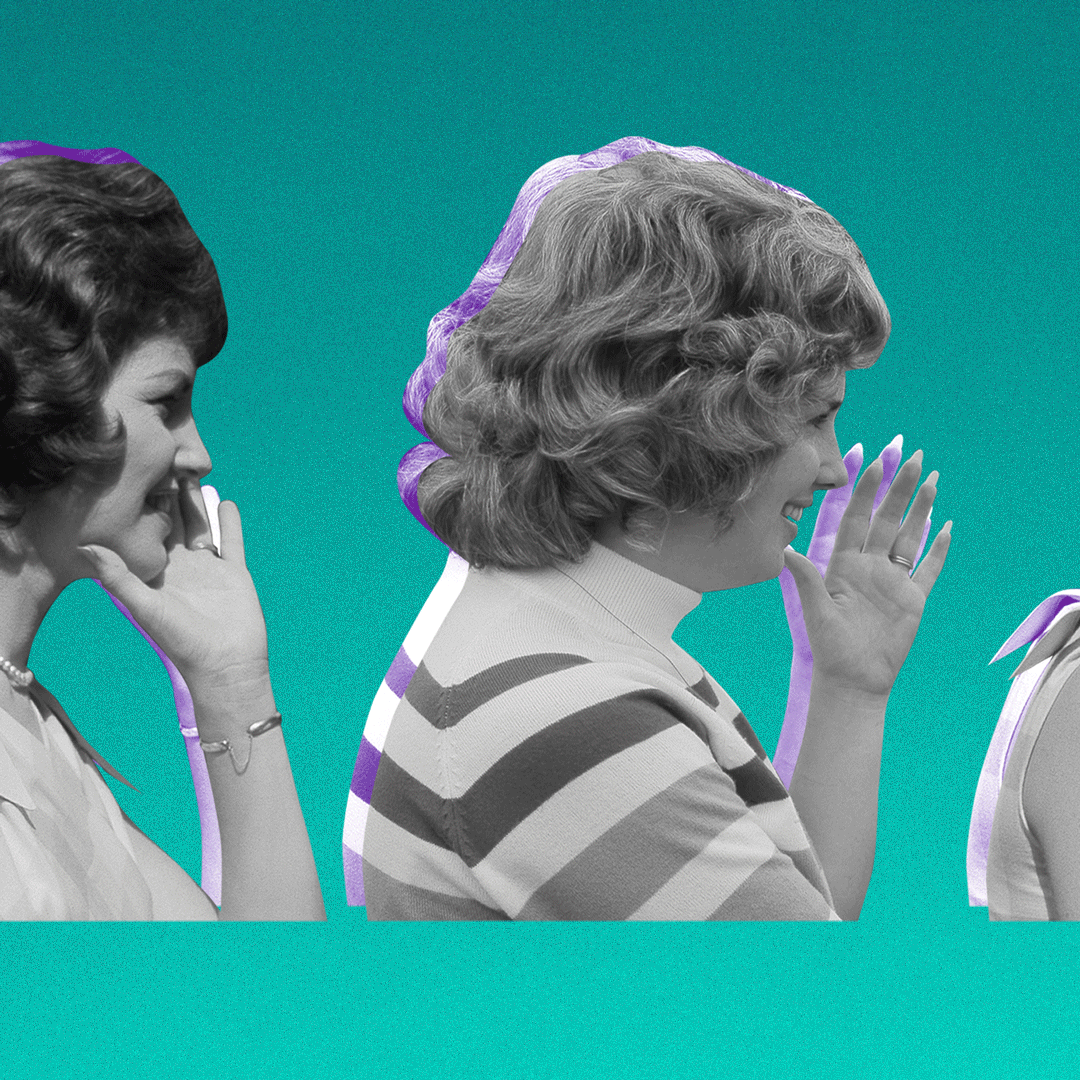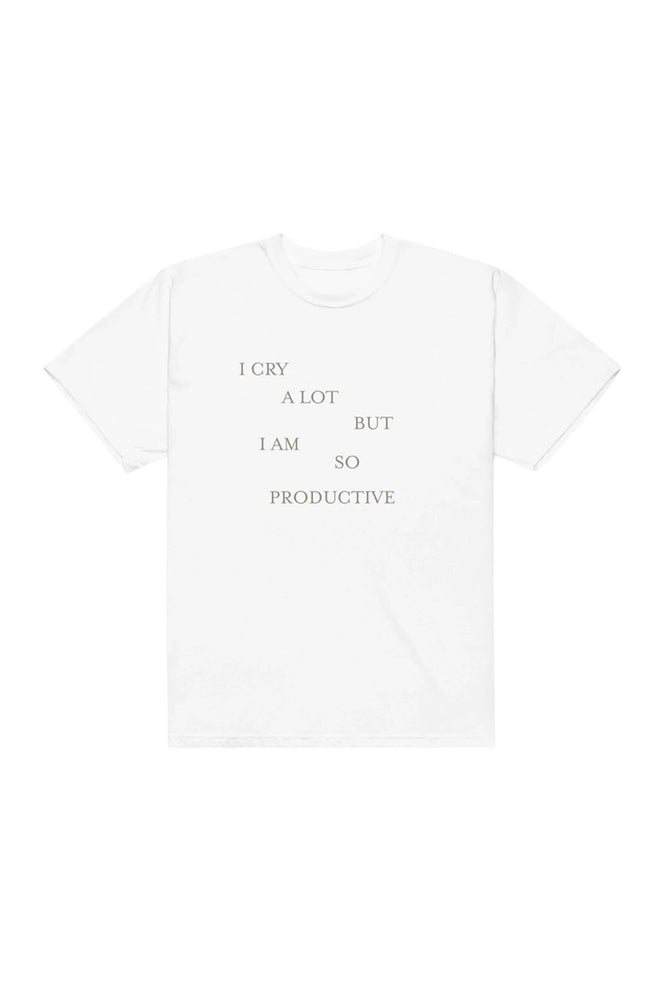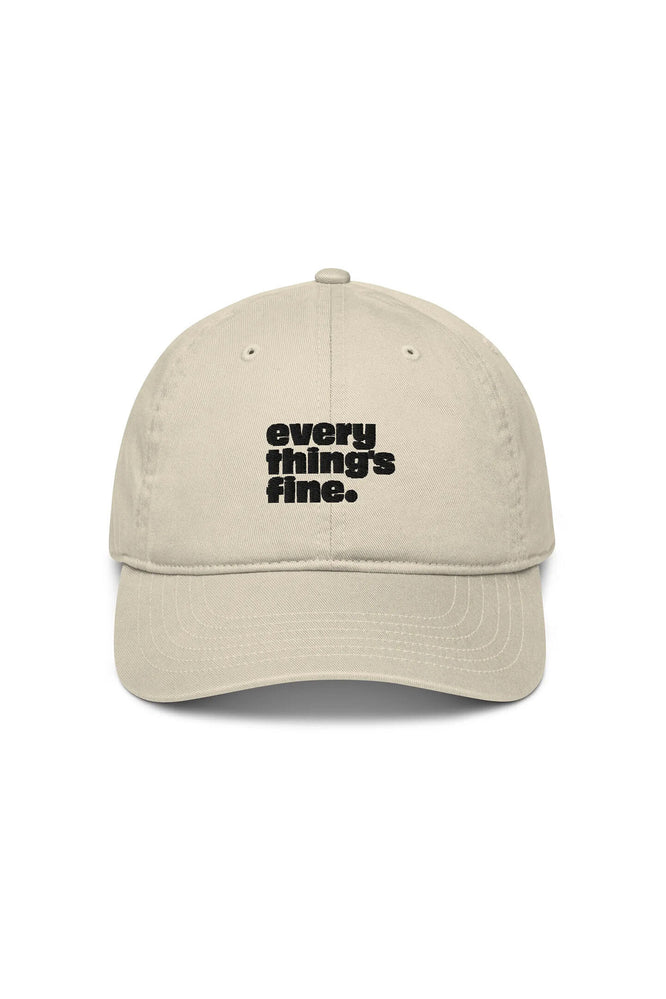Imagine this: You’re rewatching RHOBH season 1 (because it’s obviously the best) while mindlessly scrolling on TikTok past some 11-year-old’s GRWM and a weird NPC live. You keep swiping until one video stops you in your tracks. You hear a faint, familiar voice, and soon, you see familiar faces, too. Then, it dawns on you. The faces are those of your friends, and the familiar voice is that of your best friend Jessica… talking shit about you.
As you watch, it’s clear you were never meant to hear this conversation; in fact, no one outside the table was. But here it was, on TikTok for everyone’s viewing pleasure, and here you were, listening to your so-called BFF tell your friends — and now, the world — that she thinks you’ve been a sloppy drunk who’s going out way too much after your three-month situationship broke up with you.
If that scenario sounds fake, you’ll be absolutely fucking horrified to know it may not be for one woman named Sarah. In a since-deleted video that went viral in September 2023, TikToker Kellie Yancy (@kelliekelshow) films a group of friends eating together in the distance at a restaurant. “Oh, and whoever Sarah is, your friends is over there talking about you,” Yancy says to the camera. “They said that your coochie was out on a video. The way you was dressing — she said you dress sleazy everywhere the fuck you go.” The TikToker then points the camera toward the friend group before continuing to describe the gossip she overheard and encouraging TikTok users to find Sarah.
This video and others like it have lit the internet aflame with opinions: On one hand, “We should find Sarah and dox her friend group!!!” On the other, “Why can’t we let these girls gossip in private? Is nothing sacred?” This public outpouring of opinions on an otherwise private matter signals a shift in gossip culture. More specifically, it begs the question: Living in a world where someone’s every public move could unknowingly become someone else’s viral content, how does that change, when, where, and how we talk shit?

Okay, Okay, Let’s Back Up. What *Technically* Even Counts As Gossip?
Gossip and humans go wayyyyyy back. Humans have essentially “gossiped” since we could communicate. You know, the whole “You shall not bear false witness against your neighbor” thing? Yeah, that basically just means don’t make up shit about your new coworker Rachel or your cousin’s loser boyfriend Brad.
At its core, “gossip” isn’t just slander, says Dr. Myriam N. Bechtoldt, a psychologist and Professor of Leadership at EBS University Business and Law. In fact, it’s even simpler than that. “Gossiping just means talking about an absent third person,” she tells Betches. “That’s all.” According to Bechtoldt, it’s even become an important tool we use to “verify” our perceptions of the social world around us. In other words, it’s a way for us to confirm WTF is actually happening and being said between our friends.
As humans — and the batshit-crazy hellscape we live in — have evolved, though, so have the ways we gossip and the terms we use to describe it. Now, there’s also “talking shit.” There’s “spilling tea.” And what about “venting”? Are these all forms of gossip? Yes. Do they all mean the same thing? Not exactly.
One viral TikTok from @bran_flakezz tackles the nuances. From their POV, the difference lies in 1) how well you know the person you’re talking to and 2) how well you know the person you’re talking about. “The thing with gossiping is, it’s all hearsay since you don’t know the person, you don’t know if anything about the person is true,” he says of “gossip,” which he defines as scenarios in which you and someone you know well are talking about someone you don’t know well. However, talking to someone you “don’t know really well” about someone “you also don’t know well,” according to the TikToker, is “talking shit,” while talking to someone you “don’t know well” about someone you do know well is “spilling the tea.”
@bran__flakezz i feel like a philosopher when it comes to anything gossip related #relatable #gossip #spillingtea #greenscreen
While the TikToker’s definitions are helpful, there’s still one important factor missing that differentiates innocent, casual forms of gossip from more insidious ones: intention. Basically, there’s a difference between venting about a frustrating situation to a close friend and talking brutal, unnecessary shit to a casual acquaintance. It’s someone’s motive that determines whether gossiping serves as a constructive means of sharing information or a potentially harmful tool for spreading rumors, undermining trust, and otherwise just being a mean person.
When We Know It’s Bad, Why Do We Still Gossip Anyway?
In girl code, we know it’s generally fine to have a giggle about the mundane gossip of our social circles, like a weird joke from a bad date, or the laundry list of offenses by an awful ex. But passing judgment on me, my habits, and how I dress to people I barely know (if at all) when I’m not there? That’s something else entirely.
“The number one motive why people gossip that they mention is information validation and information gathering,” says Bechtoldt. Not spreading lies. Not prying with malicious intent. Sometimes, we literally just talk about other people to understand relationships, form connections, and try to make sense of whatever TF is going on. How else would you get a work bestie if you aren’t bonding over having menty Bs between meetings or talking about your micromanager boss?

For one group of participants in a 2018 study on gossip and aging, venting and casual gossip were observed as a sort of “social glue” that helped foster connections and combat loneliness. “Even if they were talking about other people there was a sense of social involvement,” says study author Stacy Torres, PhD, assistant professor of sociology at University of California, San Francisco. “There was a sense of kind of being engaged and part of a community. You had to know enough about people and their foibles or whatever you’re complaining about in order to talk about them behind their back.”
Even when intentions start out innocent enough, gossip is, at the end of the day, a slippery slope. After all, there’s a clear difference between your best friend Jessica talking about you partying after your breakup because she’s concerned about you and her calling you a “sloppy drunk” to knock you down a peg and make herself feel superior. The latter moves away from casual gossip and into the opposite end of the gossip spectrum: “talking shit” territory, where things like judgment, shaming, and spreading unsubstantiated rumors can run rampant.
The impetuses for talking shit are varied, and not all are nefarious, either. We might talk shit for selfish reasons, like jealousy, insecurity, maintaining a sense of control, or a desire to fit in. On the other hand, sometimes people really do talk shit for spiteful reasons, like purposely knocking someone down, lifting themselves up, undermining someone’s reputation, or getting revenge. “If we are disparaging someone or speaking badly about someone for the sake of discrediting them, [gossiping] becomes something else entirely,” friendship expert Danielle Jackson told Yahoo. “It becomes harmful when we are getting into the practice of just speaking poorly of other people just for the sake of speaking poorly. It is something that I’ve noticed can become habitual in certain companies. You might find that you don’t normally engage in this, but when you get with certain friends, it’s kind of all you guys do.”
Of course, you could argue the intricacies of gossip, while interesting enough, were never as important to people when the gossiping is happening behind closed doors the way the universe intended. Now, however, with more and more aspects of our daily lives becoming fodder for social media, are there some parts — like other people’s bite-sized, out-of-context gossip — that should stay private? And if we do end up airing out another’s private trash-talking for the world, what does that ultimately say about us?
“Gossiping can make us feel socially accepted — like we are social insiders while those being gossiped about are on the periphery,” Anastasia Kārkliņa Gabriel, PhD, an author and cultural strategist told Teen Vogue. “That’s precisely why it’s so addictive to tune into the juiciest gossip online with hundreds of thousands of strangers; it’s us versus them.”
Is Gossip Meant To Stay Sacred?
After Yancy’s video went viral, she told Teen Vogue starting a wave of internet drama wasn’t her end goal; rather, she maintains her intentions were pure. “Sarah needed to know how her friends really felt,” she said. “There are many dangers that people face on a daily basis while dealing with those they think are friends, but instead are talking about them behind their back.”
To Yancy’s point, some people do appreciate being told what others say behind their backs, if only so they know what they’re up against. This was the case for TikToker Marissa Meizz, who went viral in 2021 for stitching a video from @drewbdoobdoo, in which he recalled overhearing a friend group planning a birthday party while their other friend “Marissa” was away and couldn’t attend.
@drewbdoobdoo TikTok don’t let marissa’s friend group do her dirty like this!!! #fyp #ROMWEGetGraphic #marissa #nyc #nycapartment
“I hate to stick my nose where it doesn’t belong,” Drew told viewers, “but if your name is Marissa, please listen up.” Similar to Yancy’s call to action, Drew asked TikTok to find Marissa. Meizz eventually saw the video, put two and two together, and realized she was the Marissa in question.
“It felt weird knowing that everyone knew about this, but I was definitely appreciative that I was notified because I would rather know than be around awful friends that feel that way about me,” she says. There was a happy ending for Meizz, at least, who ended up founding No More Lonely Friends, an organization that holds meetups for people looking for community across the U.S.
This growing trend of overheard gossip being publicized on social media in many ways subverts the definition of “gossip” as the hush-hush practice we’ve come to know and cherish, while challenging the idea of a third, absent person in the new digital age of gossip. It also raises the more ethical concern of whether or not gossip should ever be shared with the world or if we should all just mind our damn business when we hear it in public.
If I’m being honest, I’d want to dump Jessica as my best friend immediately for spreading intimate details of my personal life, but I’d be just as mortified to find out what she said from a stranger’s random viral video. I’m already furious with her for putting all my business out there. Why would I want a random TikToker to do the exact same thing on a larger scale?
For Meizz, discussing overheard gossip on the internet is fine if it’s just meant to let the subject of the shit-talking know there are some snakes in the grass. “I don’t think recording the person’s face or location is okay, but I think retelling a story to help somebody else is normal,” she says. “I mean, after all, you are in public, and you know other people are around and they can hear you.”
TikTok creator Namila Cadet (@pretendingtobehot), however, believes that, unless there’s harmful behavior taking place (i.e. violence, instances of racism, or other scenarios that might require video evidence), gossip shared IRL shouldn’t be recorded. Referencing Yancy’s TikTok, specifically, Cadet acknowledges using social media to expose gossip is tricky, because it ropes unknown people into a situation they weren’t initially involved in — and may not want to know about in the first place.
“When you expose [private gossip] to that many people, each individual person may not make a ruling of the situation that you see fit,” she says. “And the way that they try to hold that person accountable may not be proportional to what that person has done, because they don’t know them.” In turn, recording gossip invites millions of people to be the judge, jury, and executioner in a case they have no business having an opinion on. “I just feel like that’s really overwhelming for one person.”

Spill the Tea Safely: A Guide
No matter how much the internet — and the algorithms — love a juicy story, it’s crucial to understand that relaying overheard gossip to others online can devolve into something more dangerous if left unchecked. You should use the utmost caution when publicly sharing any information about others and think hard about if the situation will spiral into something toxic like cyberbullying or online harassment before you hit record.
If you’re gonna talk shit:
1) Don’t lie: If you’re gonna gossip, at least make sure you’re a credible source and the details are accurate.
2) Share it with a small, trusted group who can actually keep a secret: Don’t gossip with your friend’s sister’s cousin’s rando boyfriend and then be shocked when it comes back to bite you.
3) Be positive, like, sometimes: You don’t want to be known as the negative Nancy who ONLY talks shit. Have some other interests!
4) Don’t be an asshole about it: If you’re just talking shit to be cruel, write it in your diary.
5) Be aware of your surroundings: Maybe don’t talk crap about your boss right outside the office or scream your gossip in a cramped restaurant.
6) If you get caught, apologize and take accountability: If you’re gonna talk shit, then at least own it.
If you’re gonna record people talking shit:
1) Be careful what you post: TikTok almost got banned, but the internet is forever.
2) Respect people’s dignity: If they’re harmlessly gossiping in public, do you really need to put them on blast?
3) Think about your motive: Are you posting to actually help someone or just to go viral?
4) Don’t disrespect people’s privacy: Are you sharing any sensitive, personal, or identifying info that could lead to harmful consequences down the line?
5) Put yourself in Sarah or Marissa’s shoes: How would you feel if someone was airing your dirty laundry to the whole fucking internet?
6) Maybe… just… stay out of it?
Although I empathize with anyone dealing with a shitty friend or a cheating ex, I can curb my savior complex to figure out if this person must find out about it on the internet… and usually they don’t. I believe that people should learn all the shit said and spread about them the good old fashioned way — face to face, through the (offline) grapevine, or not at all.













































